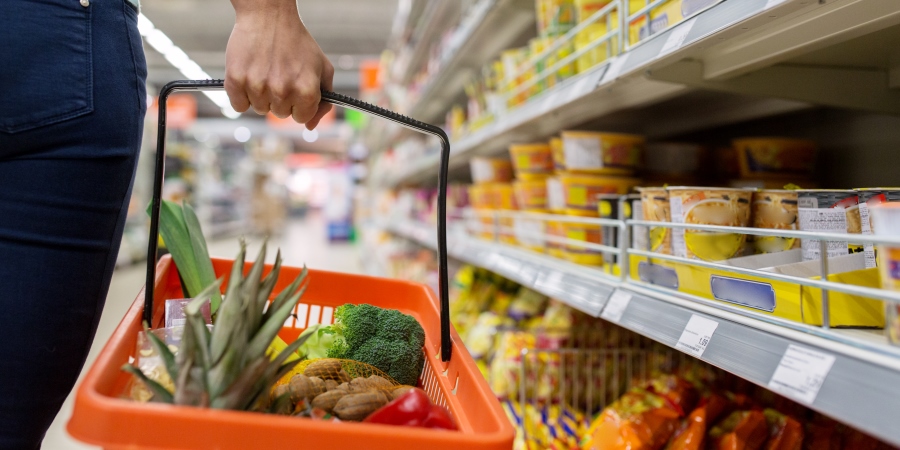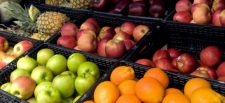The major supermarkets as a group posted record sales of £29.3 billion over the Christmas trading period, though lower inflation also took its toll.
The latest grocery market share figures from Kantar Worldpanel, published for the 12 weeks to 30th December 2018, show consumers still spent an extra £450 million on groceries compared with this time last year.
Fraser McKevitt, head of retail and consumer insight, commented: “Despite the supermarket sector growing at 1.6% – its slowest rate since March 2017 – the retailers clocked in another record-breaking Christmas as households racked up an average spend of £383 in grocery bills for the month of December.”
Saturday 22nd December proved to be the busiest shopping day of the year: more than half of all households visited one of the grocers in a last-minute Christmas hurry, with 1.7 million additional customers walking through the aisles compared to the Saturday before.
“Although the grocers achieved record sales, overall spend was actually tempered by lower inflation of 1.3% – that’s less than half the level of like-for-like inflation of 3.6% which was recorded in Christmas 2017,” McKevitt continued.
Whole turkeys experienced a drop of 7% as some shoppers opted for smaller joints, such as crowns, in a bid to crack down on endless leftovers.
Although growing at half the rate of last year, premium own-label lines still increased by 3.7% over the 12-week period – hitting a record £1.1 billion in sales.
McKevitt explained that Asda’s ‘Extra Special’ range was the fastest growing of any premium line of the major retailers, helping the supermarket achieve growth of 0.7% and come out top among the big four.
Tesco experienced growth of 0.6% boosted by an extra 125,000 customers shopping at the supermarket.
Tesco was also the only retailer that increased its promotional activity year-on-year, bringing in discounts such as its ‘29-pence pricing strategy’ on vegetables.
Sainsbury’s market share dropped by 0.3 percentage points as sales fell by 0.4%.
Inflation was at its lowest rate for two years, which meant Sainsbury’s turkey crowns were available from £9.
Mike Coupe, Group chief executive of J Sainsbury plc, said: “Christmas came late this year and I am pleased with the excellent service and availability that we gave customers across the Group. Sainsbury’s stores were well set up to deal with customers doing their big Christmas shops later than usual and Convenience stores hit a new record on Christmas Eve.”
Meanwhile, Morrisons’ market share declined by 0.2 percentage points to 10.6% despite sales growth of 0.1%.
McKevitt commented: “The discounters have continued to make their mark over Christmas: two-thirds of all households shopped at either Aldi or Lidl over the 12-week period culminating in a highest-ever combined Christmas market share of 12.8%.
“With sales up 10.4%, Aldi narrowly won the crown of the fastest-growing supermarket and it appears its marketing efforts are paying off – at least when it comes to vegetables.”
Lidl experienced growth of 9.4%. Nearly one-third of the supermarket’s December growth came through sales of branded products while its ‘Deluxe’ line saw sales jump by 33% over the month.
Meanwhile, Co-op was the only retailer to beat its 2017 growth rate, and this now stands at 3.2%.
Iceland now accounts for 2.3% of the market – up 0.1 percentage points compared with this time last year.
Sales at Waitrose dropped 1.7% and it now holds market share of 5.0% – down 0.2 percentage points. Meanwhile, Ocado’s market share fell by 0.1 percentage points despite growth of 1.3%.









